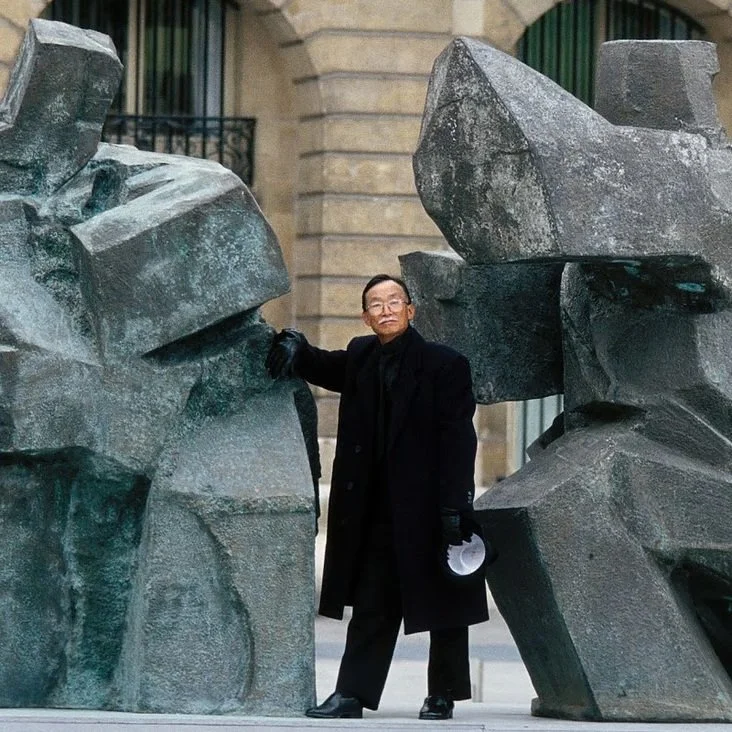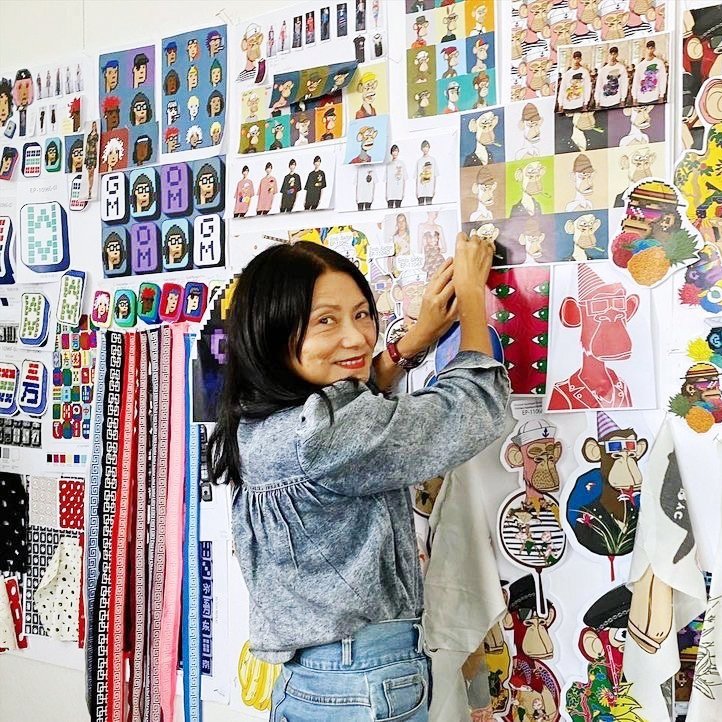"Double Happiness": How the Discovery of a Head Tax Certificate Unlocked Two Families’ Stories
Interviewed & Written by Jasmine Chen
“Double Happiness: Detour This Way" a live music and theatre show. Photo credit Daniel O'Shea.
“The sweeping melodies, multilayered harmonies, and resonant imagery swept the audience into a sonic journey of longing and belonging, at once haunting and celebratory. ”
I was lucky enough to catch Robyn and Nancy’s performance, and was caught off guard by how deeply it resonated with my own family’s story (there may have been some unexpected weeping). The story winds its way through the complexities of the Chinese diaspora by tracing the migration paths of Robyn and Nancy’s families. The sweeping melodies, multilayered harmonies, and resonant imagery swept the audience into a sonic journey of longing and belonging, at once haunting and celebratory. This conflicted cocktail of feelings is something that diasporic people know intimately, the experience of reaching a new shore with hope and optimism, coupled with the bittersweet loss of a faraway homeland.
While the performance run may have been cut short, Robyn and Nancy’s story is still unfolding, as well as the community that they are giving back to. Like Chinatown, they’re fighting to keep a cultural legacy alive, even in the face of anti-Asian racism, displacement, and continued erasure.
“Double Happiness: Detour This Way" a live music and theatre show. Photo credit Daniel O'Shea.
QUESTION: What was the inspiration for “double happiness” and what led you to create it together?
NANCY: Robyn reached out to me about this album she had written, Technicolour Education and wanted to expand it and present it onstage.
ROBYN: I started writing the album in 2016. It was initially inspired by my mother finding her grandfather’s Head Tax certificate. I was in between albums with Only a Visitor and I realized that I didn’t really know the history of my Mom’s side. It really struck me how I never asked about it. [I thought], this is the perfect way to do it. I can explore it through songwriting and the local history of Chinese migration to this region. It became a research project.
NANCY: She was seeking a collaborator and a co-producer. I really loved the music and the subject matter, because it’s important to me. We found out we have so much in common! Even within our families’ histories and experiences, it was very similar. For example, my mom’s a singer, her mom’s a singer! We both moved around a bunch and even ended up living within blocks of each other for a few years in a row, but never met. We both play piano and are songwriters.
ROBYN: At first, when I approached Nancy, I didn't even know what I wanted her role to be, but then she started bringing songs to the table and it became a new piece.
NANCY: I wanted to focus on this movement and how we’ve dispersed - how these stories are unique to our families, but part of this common narrative.
crossfade from present to past of vANCOUVER CHINATOWN. PhoTO: Courtesy of author.
Question: what is “double happiness” about?
ROBYN: Initially for me, it was a discovery of learning about the legacy of the immigrant community [in Vancouver].
NANCY: Our north star, the strongest one for me, was a celebration of the Chinese diaspora and our history here, not just our struggles. It can get heavy and dark really easily, light was a counter balance.
question: What was the process of creating “Double Happiness”?
NANCY: The initial stage was hearing everyone else's stories of their families, whether they were of Chinese descent or not. And I thought, “Right! This is about belonging.” What does it mean to feel belonging? I was so grateful that everyone was so supportive, and this idea of holding space for one another, and how to be allies.
ROBYN: Through chatting with Nancy, I was learning and building more of a connection with Cantonese culture. On a personal level, that was one of the biggest takeaways.
question: Can you tell me about the symbol of the braided hair that is prominent in the piece?
NANCY: In the show there’s a moment where a long braid is brought out and transforms into a timeline from late 1800s to present.
ROBYN: I think the braid ended up symbolizing a holding together of distance and time, through a domestic and bodily symbol. It held a lot of our themes in one.
NANCY: There’s this idea of being bonded together and our stories being weaved together. It became all of those things. The weight associated with it.
ROBYN: So many of the stories were about communicating long distance and trying to reach another place.
NANCY: That was something we needed to address. My dad went back to HK and I barely saw him, but the rest of the family was growing up in Canada. It’s just a fact [for many immigrants], it’s part of our existence.
ROBYN: At that point the project had become an offering. We were talking about how we can give back to our community and our elders. It’s not for me only, but also for my mom’s side of the family.
NANCY: It’s only the beginning. We were making the ending right up until the end. How do you summate something that is ongoing?
ROBYN: There’s no final resolution
NANCY: Exactly. Being true to that felt really good. Keep asking questions, rather than trying to find the answers to all of them. It’s ok, we’re willing to keep learning, which speaks to this gesture of offering.
question: What happened in March 2020 when the show needed to be cancelled due to COVID-19?
ROBYN: The timing was so interesting, because in a way we were so lucky, if we had opened a few days later, we wouldn’t have been able to open at all. We had poured so much into it and we were never able to document it properly.
NANCY: I was heartbroken about it. We poured our personal lives and resources into it. There was a long period of not really knowing how to move forward. In my mind, we’re still thinking of how to move forward. It was a real sense of loss on so many levels.
question: What was the audience response like to this piece?
NANCY: It was so heartwarming and encouraging. So many people came up to us afterwards and said they were inspired to dig into their own family’s histories.
When we were on CBC, this listener tuned in and ended up emailing me, saying she was touched by the project. She offered us a pendant and a ring! She was telling us her story of living in Taiwan and expressing this feeling of connection and recognition, of like, “I see you.” That’s been the most heartening.
vintage photo of Vancouver Chinatown from 1967. PhoTO: COURTESY OF THE AUTHOR
——
Follow “Only a Visitor” to learn more about Double Happiness: Detour This Way and upcoming performances.
















